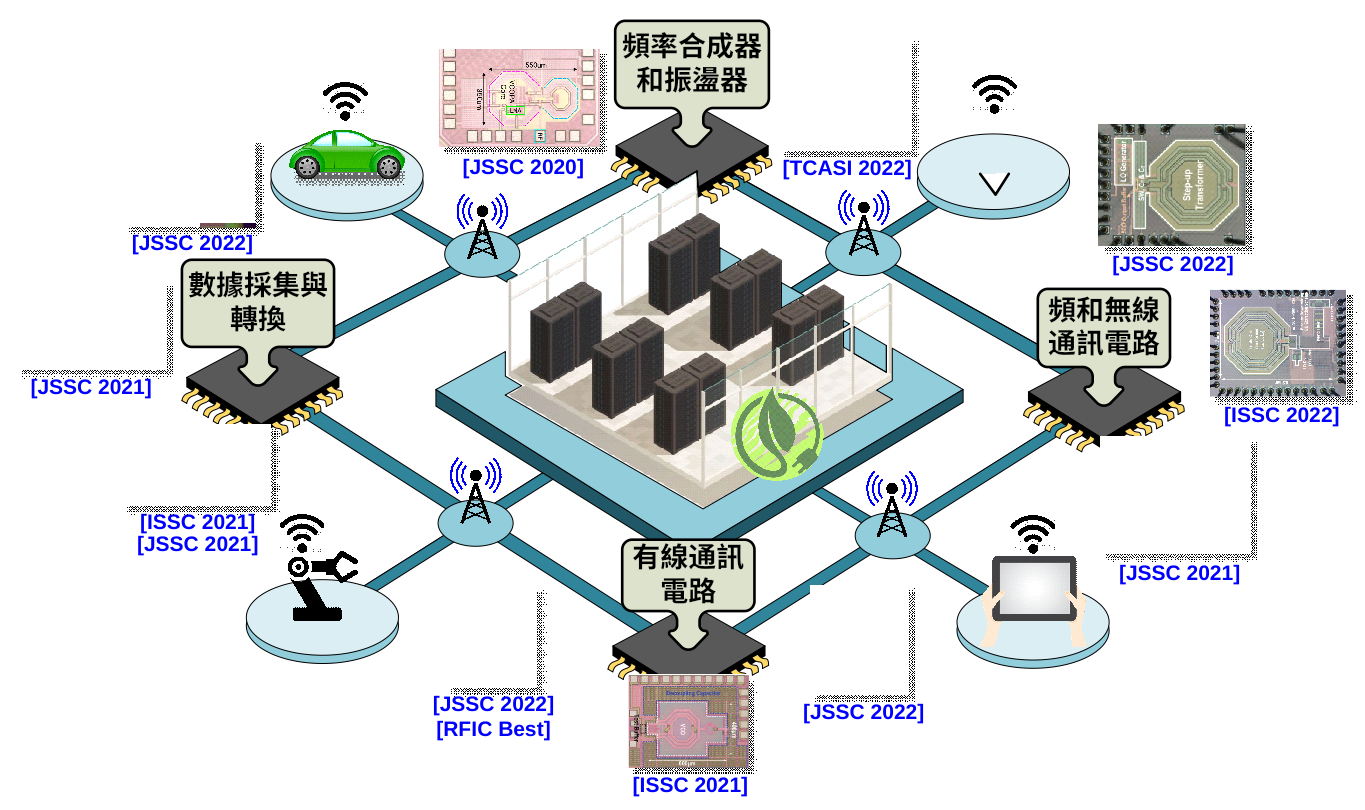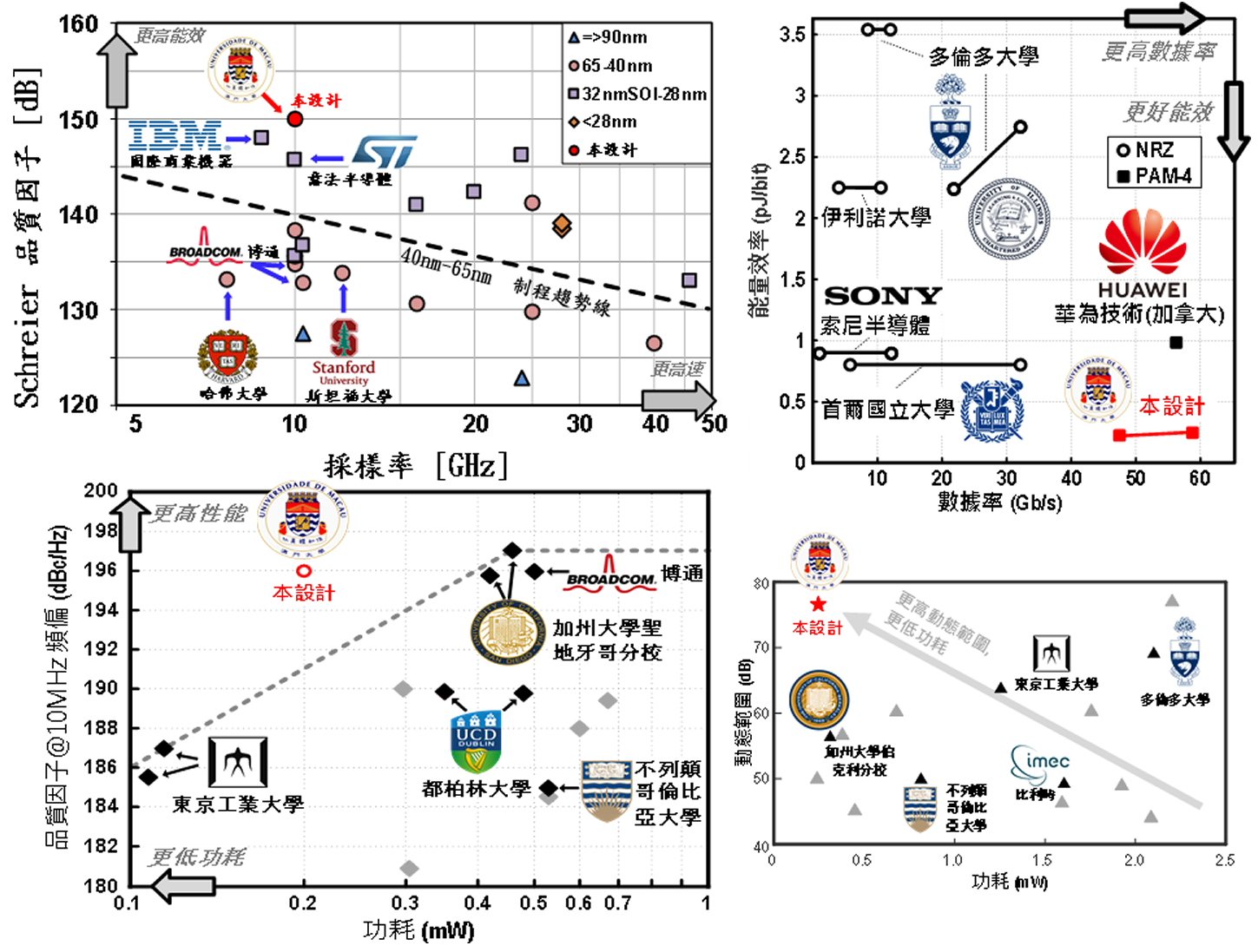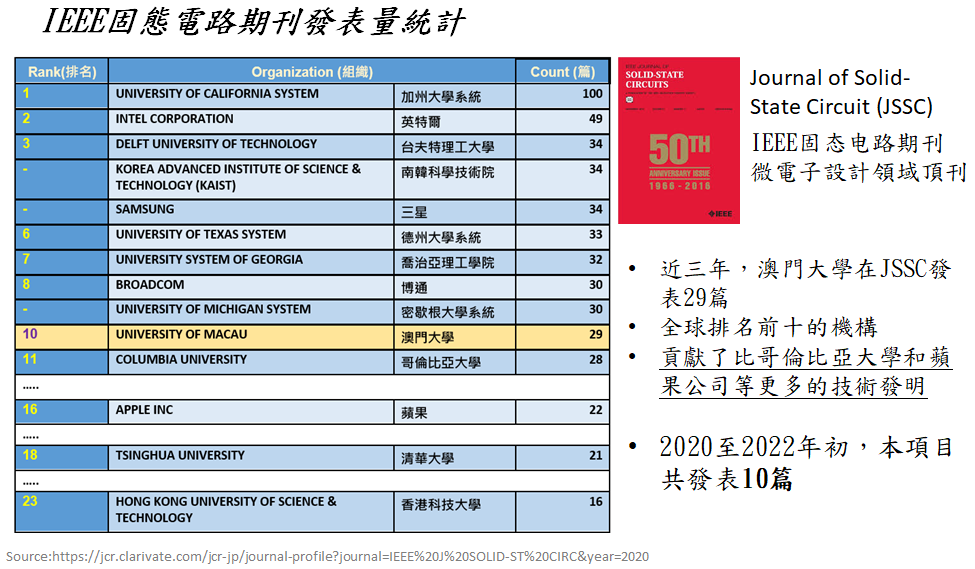Ultimately Efficient Electronic Chips Enabling a Carbon-neutral Zeta-scale Data Exchange Capability
Chan Chi Hang, Chen Yong, Zhang Ming Lei, Yin Jun, Mak Pui In
University of Macau
Big Data aided by beyond exa-scale data exchange makes our daily lives subtlety convenient and is also the cornerstone of “smart city”. With mass data from a tremendous amount of devices, the energy cost for data exchange (e.g., for cooling) substantially exceeds the hardware cost. It is thereby crucial to improve energy efficiency to facilitate the zeta-scale data exchange needed in the near future. Moreover, the carbon footprint for such a scale data exchange received more attention in recent years. To cope with President Xi's highlighted “China headed towards carbon neutrality by 2060”, ultimately-energy-efficient chips become imperative to empowering both expandable and environmental-friendly data exchange technologies. This project focuses on the key technologies for the ultimately efficient wireless/wireline chips that enable a carbon-neutral zeta-scale data exchange capability. The major technological breakthroughs of this project, developed by the team from the State-Key Laboratory of Analog and Mixed-Signal VLSI of the University of Macau, are summarized in the following four parts, including Data Acquisition and Conversion Interfaces, Wireline Circuits, Frequency Synthesizer and Oscillator, and Radio Frequency and Wireless Circuits. These technologies pave the way of expandable and environmentally sustainable data and knowledge exchange technologies among objects, devices and creature.

Fig 1 Extremely efficient electronic chip that enables carbon-neutral zeta-level data exchange capabilities

Fig 2 Comparison of four types of chip technologies in this project with international advanced chips (upper left) Data acquisition and conversion interface (upper right) Wired circuit (lower left) Frequency synthesizer and oscillator (lower right) RF and wireless circuits

Fig 3 Statistics on the number of publications in the top journals of this project, the quality and quantity of the chip technology invented by the University of Macau is comparable to that of Columbia University and Apple Inc.


